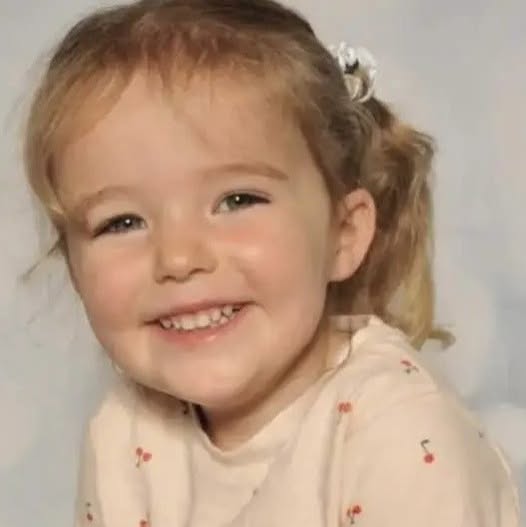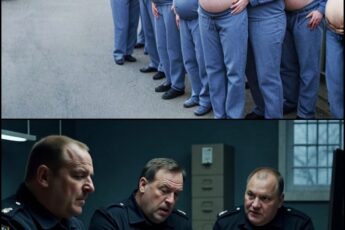The story of Ryleigh Hillcoat-Bee is heartbreaking in the most profound way. A three-year-old girl, full of innocence and potential, whose short life was tragically cut short after a battle with a rare and often misunderstood disease. Her parents, once filled with hope and the belief that their daughter was getting better, are now engulfed in anger and frustration. They feel betrayed by a system that, in their eyes, failed to do what it was supposed to—protect and diagnose their child in her most vulnerable moments.
Ryleigh was diagnosed with rhabdomyolysis, a condition that usually affects only about one in 200,000 people in the UK. It’s a disease where the muscles break down rapidly, releasing harmful proteins into the bloodstream, which can cause severe complications, including kidney failure. Though rare, it is a serious condition that requires prompt diagnosis and treatment. Unfortunately, in Ryleigh’s case, the illness was not identified in time, and her family believes this was due to medical oversight.
Before her tragic death, Ryleigh was admitted to Blackpool Victoria Hospital, where she was kept for five days. Her symptoms were frightening—the girl was tired, sluggish, floppy, and unable to move normally. Her blood tests revealed something alarming: extraordinarily high levels of Creatine Kinase, an enzyme that signals muscle breakdown. Such a reading is a red flag, a warning sign that should have prompted further investigation, especially by specialists trained in neuromuscular disorders.
Yet, despite these warning signs, the medical team concluded she had either a viral infection like hepatitis or a chest infection. They did not pursue the more complex possibility of a neuromuscular disease. This decision, a crucial turning point, has been labeled by her family and legal experts as a tragic oversight. They argue that if the hospital had taken the step to consult a neuromuscular specialist, the diagnosis of rhabdomyolysis could have been made much earlier. That, in turn, might have opened the door to treatment options that could have saved her life or at least extended it. Instead, her condition was dismissed, and her parents felt they were kept in the dark.
The coroner’s investigation, led by Alan Wilson, has shed further light on the case. Wilson concluded that the medical team had overlooked the “red flags”—the symptoms and blood test results that indicated a much more severe underlying issue. In his statement, he pointed out that the hospital was given clear advice to seek specialist input but failed to act on it. This is a heartbreaking detail for the family. They trusted the medical professionals to guide them through one of the most difficult times—trusting that their child was in good hands. They believed that the doctors would see what they saw: a girl in trouble who needed help beyond routine tests.
Diane Rostron, a lawyer specializing in medical malpractice, expressed her worries as well. She pointed out that if the hospital had simply contacted a neuromuscular specialist, they might have diagnosed rhabdomyolysis, ordered specific treatments, and inform their family of the severity of her condition. “This wasn’t just about missing a diagnosis,” Rostron said. “It’s about the failure to act on obvious warning signs that could have saved a young girl’s life.”

The family’s agony is compounded by the fact that they were helpless to change anything in those critical days. They watched their daughter grow weaker, and by the time the hospital acknowledged her condition for what it was, it was already too late. Three long months passed before the grim reality was confirmed—that the unrecognized illness had contributed directly to her death. Their grief has turned into raging frustration, and their questions—accusations—are now directed at a healthcare system they once trusted implicitly.
From the outside, it is easy to see systematic failures in this story, but the pain runs deeper for those involved. These parents will carry the memory of Ryleigh forever—the bright eyes, the tiny hands, the infectious giggle—all overshadowed now by the haunting knowledge that her life might have been saved. They are left to grapple with what-ifs, with feelings of anger, sadness, and helplessness. They hope that through their pain, awareness will rise—hope that others will learn from their tragedy and that future children won’t fall through similar cracks.
We extend our deepest sympathies to Ryleigh’s family. There are no words that can truly ease such a profound loss, but perhaps it’s in remembering her bright spirit and the love she brought into the world that her memory can inspire change. May she find peace, and may her story serve as a reminder to prioritize thoroughness, compassion, and attentiveness in every moment of care. Because in the end, what matters most is ensuring that no family has to suffer such heartbreak again.
Kindly SHARE this information on Facebook with your loved ones.



